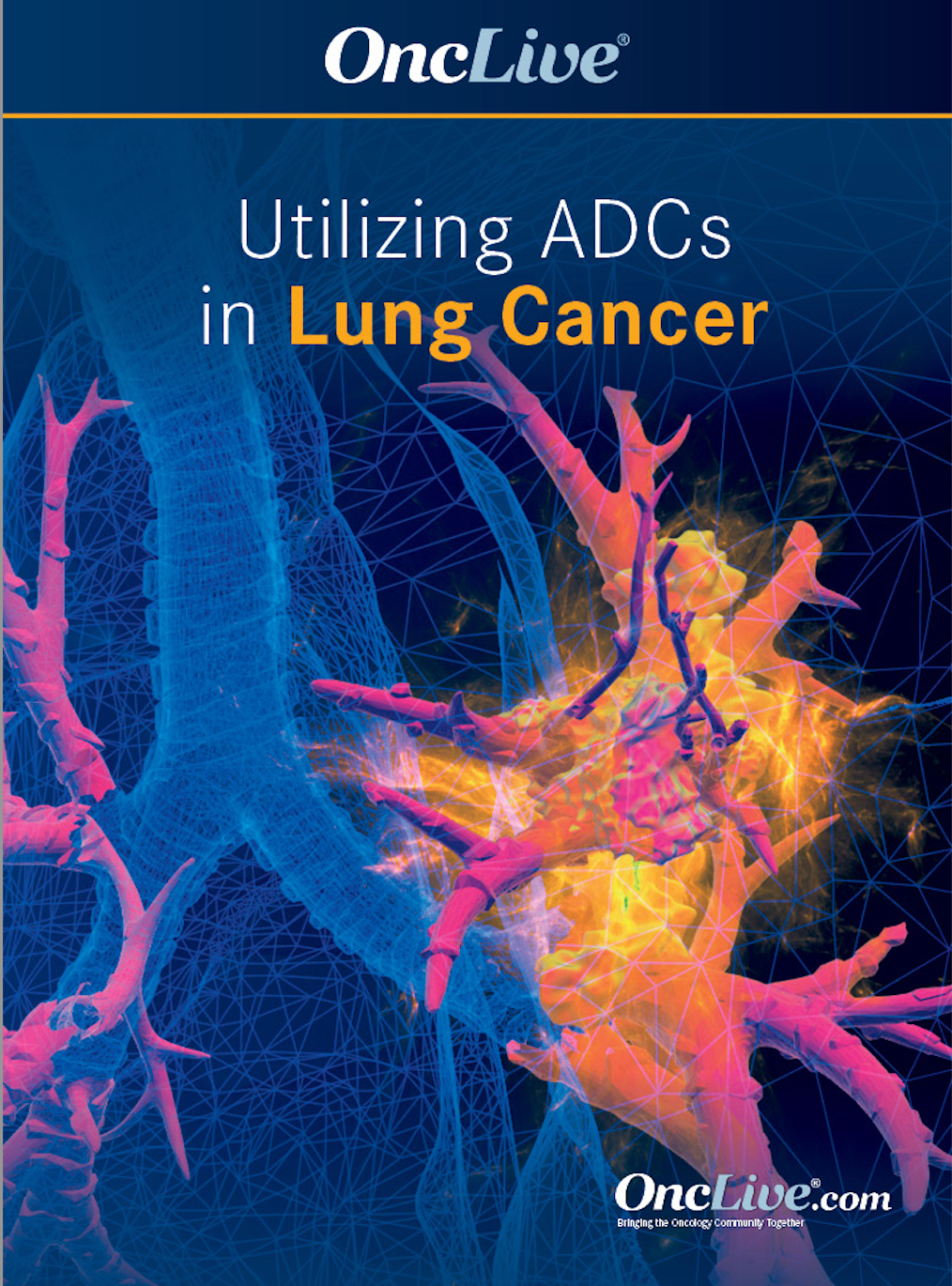Publication
Article
Supplements and Featured Publications
Trastuzumab Deruxtecan Expands the Targeted Landscape for HER2-mutant NSCLC
Author(s):
Benjamin Levy, MD, discusses treatment considerations for the integration of trastuzumab deruxtecan into practice and what this approval signals for the future of the field.
Benjiman Levy, MD

The antibody-drug conjugate (ADC) fam-trastuzumab deruxtecan-nxki (Enhertu) is breaking new ground in the treatment of non–small cell lung cancer (NSCLC), according to Benjamin Levy, MD.
On August 11, 2022, the FDA granted accelerated approval to trastuzumab deruxtecan for the treatment of patients with unresectable or metastatic NSCLC who have received a prior systemic therapy and whose tumors have activating HER2 mutations.1
Results from the phase 2 DESTINY-Lung02 trial (NCT04644237), which evaluated the safety and efficacy of trastuzumab deruxtecan in patients with metastatic NSCLC harboring a HER2mutation, supported the approval. Among 52 efficacy-evaluable patients the objective response rate (ORR) was 57.7% (95% CI, 43.2%-71.3%), including a 1.9% complete response rate. Additionally, the median duration of response (DOR) was 8.7 months (95% CI, 7.1–not estimable [NE]).2
“This [approval] is exciting; it is yet another tool in our therapeutic armamentarium to deliver personalized therapy for patients with NSCLC, specifically patients that have HER2alterations,” Levy said.
In an interview with OncologyLive®, Levy, the clinical director of medical oncology at Johns Hopkins Sidney Kimmel Cancer Center at Sibley Memorial Hospital and an associate professor of oncology for Johns Hopkins University School of Medicine in Baltimore, Maryland, discusses treatment considerations for the integration of trastuzumab deruxtecan into practice and what this approval signals for the future of the field.
How does the approval of trastuzumab deruxtecan affect the treatment of HER2-mutant NSCLC?
Historically, we have not been able to [effectively treat patients with] this alteration and we have a very good drug now, the [ADC] trastuzumab deruxtecan, which can elicit durable and meaningful responses. [This is a] big change, HER2 alterations are now the tenth biomarker in lung adenocarcinoma allowing us to give another targeted therapy.
The approval will underscore the importance of molecular testing; we cannot give this drug or other drugs [like it] unless we identify the alteration. HER2 mutations have not been druggable—we have been giving chemotherapy and potentially even chemotherapy with immunotherapy. We have not had a lot of luck with other tyrosine kinase inhibitors or other monoclonal antibodies, so this is exciting.
This also introduces for the first time an ADC into the field of therapeutics for NSCLC. This is going to create a lot of excitement about this class of drugs, and we will see more ADCs come down the pike and be used in everyday practice for patients with lung cancer.
Please discuss the pivotal efficacy data from the phase 2 DESTINY-Lung02 trial.
DESTINY-Lung02 was a multicenter randomized study of trastuzumab deruxtecan in patients with HER2-mutated NSCLC who had prior treatment. [Investigators] were looking at 2 different doses: 5.4 mg/kg every 3 weeks [or] 6.4 mg/kg. The primary end point was ORR.
When [investigators] looked at the 52 patients in the primary efficacy population, for those patients who got 5.4 mg/kg, the ORR was 58% and the DOR was 8.7 months. That is remarkable and this is going to change the way that we treat patients.
Importantly, we can talk about efficacy, but we certainly need to mention tolerability. There were some adverse events noted, including laboratory abnormalities, nausea, decreased white blood cell count. [However], we did not see higher rates of interstitial lung disease. [It is present], but [it] was not as high as we [those seen]in the 6.4 mg/kg dose.
Given its safety profile, are there certain patients who you would not treat with trastuzumab deruxtecan?
I do not believe so, this drug is exceptionally well tolerated. Clearly, [when administering it to] patients with underlying interstitial lung disease you want to be careful. But I have had experience with this drug, it is reasonably well tolerated. Like any ADC, we need to be mindful of cytopenia, fatigue, and nausea. All in all, this is emblematic of where we are heading in the field, which is that we are getting better therapies that elicit more meaningful responses that are better tolerated.
What are your thoughts on the companion diagnostic tests, Oncomine Dx Target Test and Guardant360 CDx, that have also been approved by the FDA?
You cannot give this drug unless you test and complete testing is predicated on good next-generation sequencing, both in tissue and in liquid. I would encourage everyone to make sure that they are doing both and if we can do both, we are more likely to capture these HER2 alterations and then we can give these drugs.
What do these data signal about future directions for the field?
This is a testament to the science, it is a testament to all of the hard work from the physicians, both clinically and translationally, to get a good drug to the patients who have HER2 alterations. It is a testament to precision medicine, to personalized medicine, and, I am biased, but I [think] lung cancer is the poster child for precision medicine. This is yet another drug that we can use for patients with specific alterations.
Targeted therapies are very important for patients, and I think we’ve just begun to scratch the surface on how we leverage genotype directed therapies for patients with specific alterations. We’ve got 10 biomarkers, my hope is within 5 years, we’ll have another 5 to 10 biomarkers that we can use that drive decision making for targeted therapy. I also think that combination approaches are going to be important. Wedding alterations to single agent drugs are important, but having combination approaches are going to be important to advance the field.
References
- FDA grants accelerated approval to fam-trastuzumab deruxtecan-nxki for HER2-mutant non-small cell lung cancer. FDA. Updated August 11, 2022. Accessed August 17, 2022. bit.ly/3K91BPJ
- Enhertu. Prescribing information. Daiichi Sankyo, Inc; 2022. Accessed August 17, 2022. bit.ly/3CdnnzL









